You’d have probably come across the phrase ‘peaking at the right time’ over the past few days with regards to Australia and the 2023 ODI World Cup. Here’s another term in the same context: tournament play. We seem to be peaking at the right time, which Australia tend to do in tournament play, Mitchell Starc said in Kolkata before Australia beat South Africa to earn the right to play India in the final.
That's a lot of sporting jargon in one sentence, but also one that the Aussies have stayed true to in this World Cup. So, what exactly is tournament play? It has no definition, but reflects a trend — of starting slow in a marquee event that lasts a considerable length, picking up the pieces along with the pace just in time, switching gears and riding the gradually-built momentum deep. It’s a slow burner that shines the brightest when the stakes are highest.
The five-time ODI world champions began this World Cup with two timid defeats to India (6 wickets) and South Africa (134 runs), lying 10th in the points table at one point with no signs of an upswing. There were certainly none when Sri Lanka were 125 for no loss in Australia's third league game. Until something flipped. David Warner took a spectacular outfield catch for the first Sri Lankan wicket, and off went Australia. On an eight-match winning run when another defeat or two could’ve well pulled them out of the knockouts race.
It still wasn’t (and isn’t) the Australia we know, yet it has turned into a team that knows how to eke out wins; even when things get too close for comfort (like against New Zealand, Afghanistan and in the semi-final). Like they did in the 1999 World Cup.
The building blocks of Pat Cummins’s troops — which ticked off various boxes as it motored along in India — stands in contrast with losing semi-finalists New Zealand and South Africa, who charged off the blocks before stumbling towards the business end. And even as Australia struggled to find any semblance of positivity in their early days, the belief that their best was yet to come in a long tournament kept their shoulders from dropping.
It certainly wasn't panic stations, Starc told ABC Sport podcast before their penultimate league game against Afghanistan in Mumbai. We were very aware we weren't playing our best cricket. We've all played a lot of tournament play before — whether it be World Cups or BBLs (Big Bash League) or IPLs (Indian Premier League).
Mumbai Indians perhaps best exemplify tournament play in the IPL. Perennial slow starters, they lost the opening four games of their triumphant 2015 season. A year prior, Kolkata Knight Riders lost five of their first seven games before hitting their best notes in the business end of the title-winning dance. It’s a bit like how the top guys — the Djokovics, Nadals and Federers — approach Grand Slam tennis. They tend to play within themselves over the first few rounds, don’t necessarily fret over dropping a set, and progressively crank it up come the second week of the two-week competition. As the popular notion goes, get them in the first week if you can before they transform into an unstoppable force.
Strong cricket culture

Cricket is a part of the fabric of Australian society, and the country has a strong cricket culture that supports the development of the game. This includes strong support from the media, sponsors, and fans, which has helped to create a positive environment for the Australian cricket team to thrive in.
World-class facilities

Australia has a number of world-class cricket facilities, including top-quality grounds and training facilities. This has allowed the Australian cricket team to train and prepare for international matches to a high standard.
High levels of talent

Australia has produced a number of world-class cricketers over the years, and the country has consistently been able to produce talented players who have gone on to excel at the international level. This has allowed the Australian cricket team to maintain a high level of competitiveness.
Great Captains

The Aussie’s have always been blessed with some great leaders. All their World Cup winning captains have not only been fine leaders but also legends in their own right. Allan Border held the record for the most Test runs for a long time; on the other hand, Steve Waugh is among the top 10 leading run scorers in Tests. Ricky Ponting is 2nd in the list of leading Test run scorers and 3rd in the list of leading One Day International run scorers while Michael Clarke is one of the best Test batsmen of the current generation. To add to it, they have all taken responsibility when it mattered the most.
Australia’s triumph in the 2015 ICC Cricket World Cup is a testimony to their unmatched skills and steely resolve to stay at the top. No matter what the opposition throws at them, they give it back with greater intensity. It is this quality that has always kept them one step ahead of the rest and put them on the path to endless glory.
How many ODI World Cups have Australia won
Australia hold the honour of having won the most World Cup trophies in the history of the tournament, having won the competition a record six times, with no other side having won more than two. They achieved these successes in 1987, 1999, 2003, 2007, 2015, and 2023
Every ICC trophy won by Australia
| Number | Trophy | Opponent | Year |
| 1 | World Cup | England | 1987 |
| 2 | World Cup | Pakistan | 1999 |
| 3 | World Cup | India | 2003 |
| 4 | Champions Trophy | West Indies | 2006 |
| 5 | World Cup | Sri Lanka | 2007 |
| 6 | Champions Trophy | New Zealand | 2009 |
| 7 | World Cup | New Zealand | 2015 |
| 8 | T20I World Cup | New Zealand | 2021 |
| 9 | WTC Final | India | 2023 |
| 10 | World CUp | India | 2023 |
Also Read: Why did the Indian team lose the Under 19 World Cup?


Disclaimer
Possible11 is a sports news and analysis platform designed purely for entertainment and educational purposes. All match previews, player insights, and team analyses are based on publicly available information and expert opinions. We do not promote or support betting, gambling, or real-money gaming in any form. Users are encouraged to enjoy our content responsibly and use it for informational purposes only.



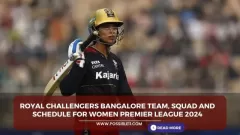






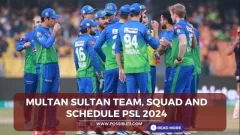
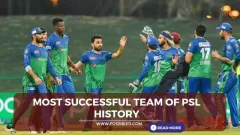
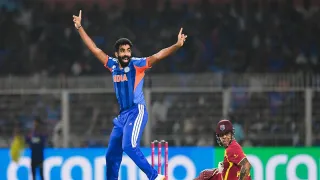
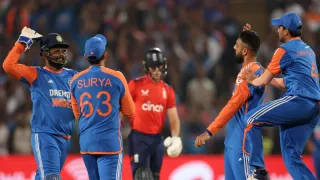


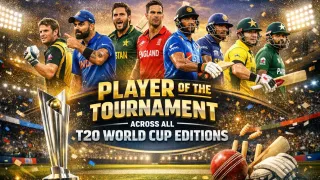
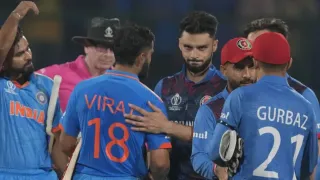
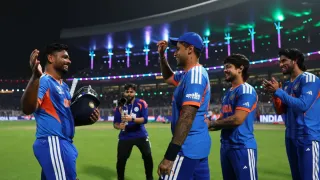
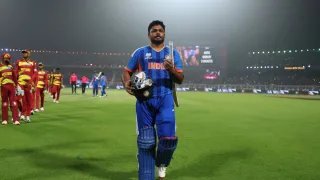
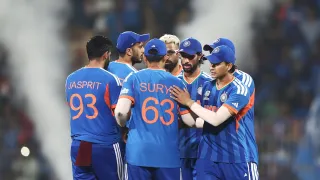
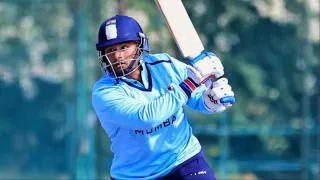
Give Your Feedback